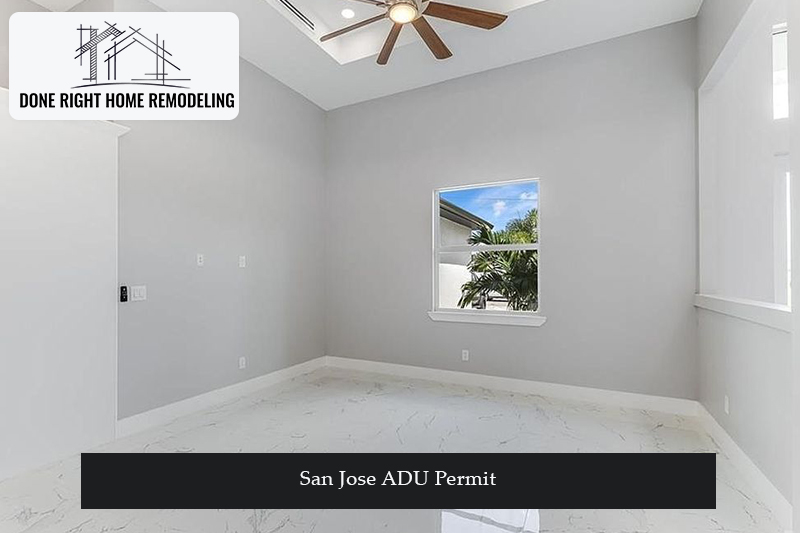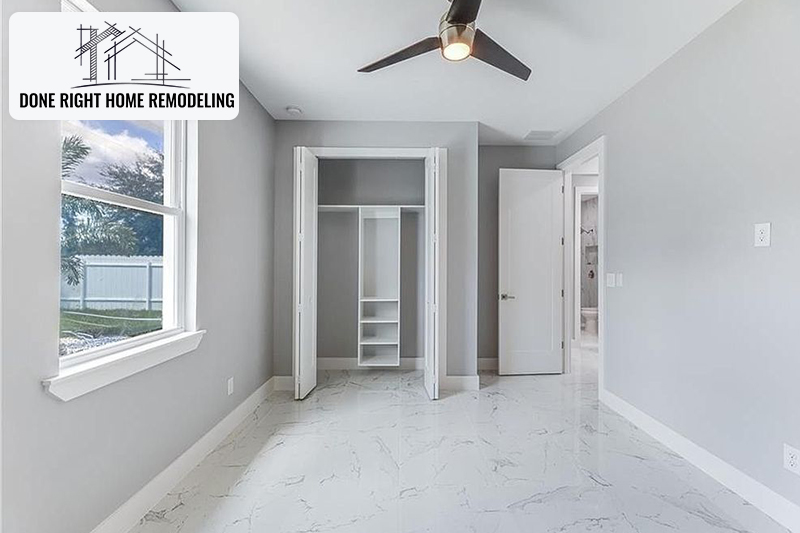LIC #: 1002689
Call Now: 1-800-816-0000
Acquiring a San Jose ADU permit will allow you to legally build a secondary unit in your lot. It will prove your construction complies with local building codes, safety regulations, and zoning laws.

The process of obtaining an ADU permit can be overwhelming. However, it is doable, and the best part is if you work with professional ADU builders in San Jose, who will handle this process for you.
While applying for ADU permits can be a little challenging when doing it on your own, understanding what’s required of you and the process to follow can make things a lot easier.
Generally, there are five major steps to obtaining San Jose ADU permits. These include the following:
| Determining eligibility | Your property must meet San Jose Planning Department regulations for residential use. There should not be any zoning or development violations. |
| Developing an ADU design | If you are eligible, the next step is to work with your assigned Done Right Home Remodeling project manager to create a design that meets your needs and complies with the regulations. |
| Applying for an ADU permit | Submit your ADU permit application to the San Jose Planning Department. Your application should include a site plan, floor plans, elevations showing the exterior appearance of the ADU, and details on the proposed construction materials and methods. You will also provide information on the property, including the address, zoning, and lot size. |
| Obtain San Jose ADU approvals | The San Jose Planning Department will review your application and plans to ensure compliance with zoning and building codes. You may need additional approvals from other departments, such as the Building Department or Water Company. |
| Obtain building permits | Once your ADU permit has been approved, you will need to obtain building permits before beginning construction. |
The processing time for an ADU permit in San Jose can vary depending on the complexity of the project and the workload of the city departments. However, it generally takes between 4 to 6 weeks to obtain a San Jose residential ADU permit.

Second-story ADUs are permitted in San Jose, but they require additional approvals. You will need to obtain a structural permit, which requires a structural engineer’s review of the plans.
When planning for a second-story ADU, the exterior features such as decks, unenclosed entry landings, and balconies should be located on the second floor of a detached ADU.
These features should not be located along the building walls near the rear or side property lines.
Obtaining San Jose ADU permits can be a complex and time-consuming process, but with the right guidance and expertise from a professional ADU contractor, it can be a successful and rewarding endeavor.
If you are considering adding an ADU to your property in San Jose, Done Right Home Remodeling can guide you through the process and ensure your project succeeds. We will handle the process, design the ADU and construct it to match your needs and preferences.
Contact us today, and let’s discuss your ADU project.
You may want to notify your neighbors about the ADU construction a few days before. You can do this through a written notice or a knock on their doors to inform them of the heads-up.
In general, ADUs in San Jose require parking spaces. However, there are several exceptions under the state law. If your ADU will have a parking space, the area should be free of mud or dust. The space may be located within the property’s front or side setbacks and within an 18 feet driveway.
Yes, permits for attached and detached ADU are different. For example, for single-family property, an attached ADU should have the same height as the main dwelling unit, while a detached ADU can have one story or two-story height.
In San Jose, the number of bedrooms in an ADU is not limited. However, the bedroom area of each room should not exceed 400 square feet. If the planned bedroom area is greater than 400 square feet, it will not be approved.